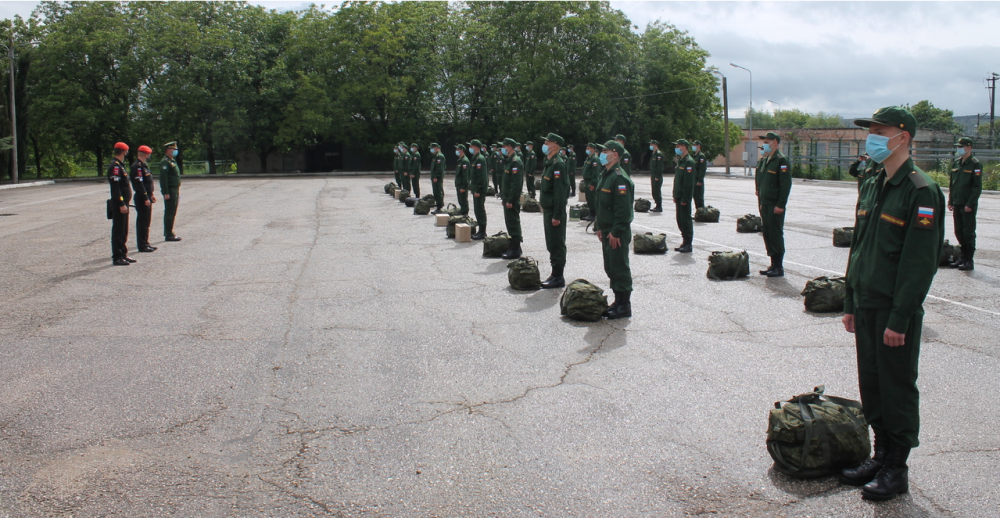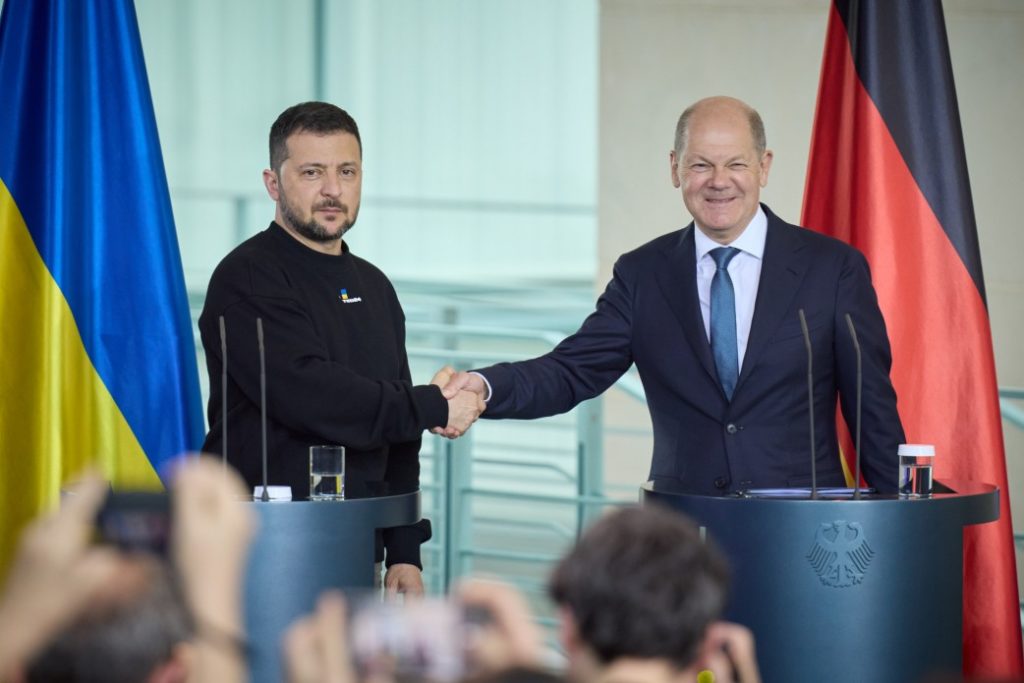Ukrainian Foreign Ministry protests Russian conscription in occupied territories
The Ukrainian government is urging its citizens in Russian-held areas to resist conscription attempts by Russian occupying forces.


The Ukrainian Ministry of Foreign Affairs issued a “strong protest” against the forced mobilization of Ukrainian citizens into the Russian army in occupied territories of Ukraine, according to a statement released on 1 October.
The ministry’s statement refers to occupied Crimea and parts of Donetsk, Luhansk, Zaporizhzhia, and Kherson oblasts. It points out that this “conscription” in occupied territories violates the Geneva Convention on the Protection of Civilians in Time of War.
The move comes as Russia plans to increase the number of soldiers in its armed forces. Russian President Vladimir Putin signed on 16 September 2024 a decree to increase the size of the Russian military by an additional 180,000 personnel, totaling 1.5 million, which will come into effect in December 2024.
The Ukraine’s Foreign Ministry argues that conscription on Ukrainian territory delegitimizes the entire process in Russia. The ministry believes that Russian conscript citizens “have grounds not to comply with the unlawful ‘Decree of the President of the Russian Federation on conscription for military service’ and to avoid such ‘conscription’ by all means.”
“We call on citizens of Ukraine in occupied territories to avoid such ‘conscription’ by all means, and those who are forcibly enlisted into the army of the aggressor state to leave such units at the first opportunity and return to the territory of Ukraine or leave for third countries,” the Foreign Ministre reports.
Zaporizhzhia Oblast Governor Ivan Fedorov said earlier in August that Moscow-installed authorities launched a campaign in the occupied part of Zaporizhzhia Oblast, insisting people enlist in Russian armed forces.
British intelligence, analyzing the start of autumn conscription in Russia on 1 October, suggests that conscripts will be forced to sign contracts upon completion of service to send them to war against Ukraine, the ministry reports.
Meanwhile, the US-based Institute for the Study of War (ISW) noted that another wave of mobilization in Russia remains unlikely in the near and medium term due to Russian leader Vladimir Putin’s personal fears that it poses a direct threat to the stability of his regime.
The Russian State Duma also passed a bill allowing the recruitment of not only convicted criminals or those under investigation but also over 20,000 defendants whose cases are currently being heard in court for the war against Ukraine.
Ukrainian Defense Minister Rustem Umerov said back in May that Russia had around 500,000 troops positioned in Ukraine and near its borders, with plans to increase this number by an additional 200,000-300,000.
Read also:
- ISW: Russian forces likely seize Vuhledar after years of failed attempts
- Lithuania denounces three economic agreements with Russia and Belarus
- Franco-German defense giant KNDS opens facility in Ukraine
You could close this page. Or you could join our community and help us produce more materials like this.
We keep our reporting open and accessible to everyone because we believe in the power of free information. This is why our small, cost-effective team depends on the support of readers like you to bring deliver timely news, quality analysis, and on-the-ground reports about Russia's war against Ukraine and Ukraine's struggle to build a democratic society.
A little bit goes a long way: for as little as the cost of one cup of coffee a month, you can help build bridges between Ukraine and the rest of the world, plus become a co-creator and vote for topics we should cover next. Become a patron or see other ways to support.


